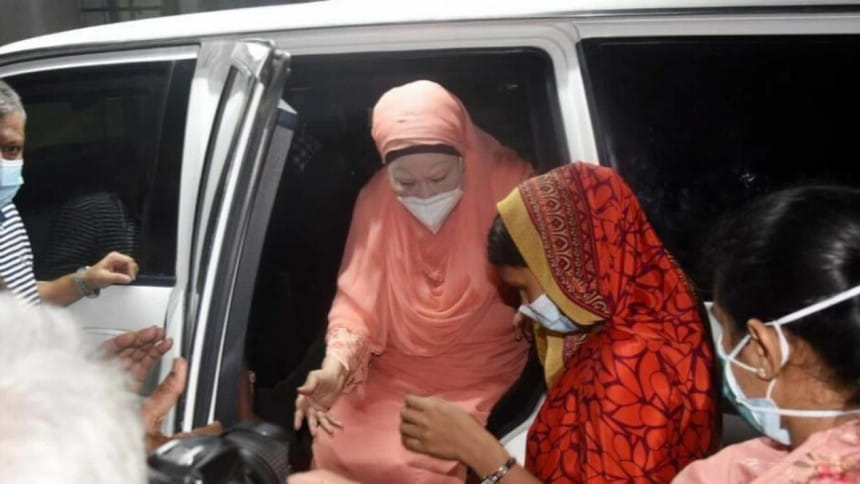There could be a legal way out

After Prime Minister Sheikh Hasina said BNP Chairperson Khaleda Zia needs to return to jail first for a court to accept her application for treatment abroad, some experts said the government could still let her go abroad.
There is an example of such a thing happening in the past, they said, adding that legal barriers are being put with political intent.
Senior human rights lawyer ZI Khan Panna told The Daily Star that in 1979, president Ziaur Rahman allowed Jatiya Samajtantrik Dal leader ASM Abdur Rob, who was in jail serving a 10-year sentence at the time, to travel to West Germany for treatment.
Though the Appellate Division rejected Khaleda's bail plea, suspension of her sentence and her release from jail were made by an executive order without the court's consultation. It is only a matter of government decision, he added.
The government can make executive decisions for the greater good of the state, or even of individuals, he said. "If the government wants, it can let her go abroad right away."
Former cabinet secretary Ali Imam Majumdar said, "First, the government can declare Khaleda Zia's home or hospital cabin as a sub-jail. Then when Khaleda applies for bail, the attorney-general's office will not oppose it. Once she gets bail, there should be no bar on her travel abroad."
According to a Supreme Court lawyer, who requested anonymity, the government can issue a similar executive order letting her leave the country as per section 401 (1) of the Code of Criminal Procedures, which states: "When any person has been sentenced to punishment for an offence, the Government may at any time without conditions or upon any conditions which the person sentenced accepts, suspend the execution of his sentence or remit the whole or any part of the punishment to which he has been sentenced."
The government can allow this without resorting to legal complications, and it can even waive her prison sentence, the lawyer says.
In a recent interview with Voice of America, Prime Minister Sheikh Hasina said Khaleda would have to return to jail and get permission from the court if she is to travel out of the country.
The government on March 25, 2020, issued an executive order suspending Khaleda's prison sentence and releasing her from jail on the condition that she stay in her Gulshan house and not leave the country.
The BNP chief landed in jail on February 8, 2018, after a special court sentenced her to five years in prison on corruption charges. The High Court later raised the sentence to 10 years.
The BNP chairperson's family members fear that her condition can deteriorate anytime as she has liver cirrhosis, arthritis, diabetes, kidney diseases, and problems in her lung, heart and eyes.
She remains admitted to the Evercare Hospital since August 9. In recent days, she was taken to the coronary care unit three times.
Meanwhile, Law Minister Anisul Huq yesterday told a reporter that the decision on Khaleda's treatment abroad will be made Today.
On September 5, Khaleda's brother Shamim Iskandar submitted an application to the home ministry, seeking her unconditional release and permission to take her abroad for physiotherapy at an "advanced medical centre" on an urgent basis to save her life.
In the letter, Iskandar wrote that modern treatment for his sister's liver and heart problems is not available in Bangladesh.
The home ministry forwarded the letter to the law ministry.

 For all latest news, follow The Daily Star's Google News channel.
For all latest news, follow The Daily Star's Google News channel. 








Comments